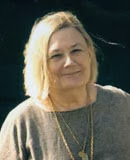About Me

- Anita Burgh
- I am a writer - late developer since I wasn't published until I was 50. I have now written 23 novels, numerous short stories and articles.
Followers
Blog Archive
My Blog List
Powered by Blogger.
Slideshow
Monday, 10 August 2009
Without doubt everybody approaches writing in diverse ways. They have different techniques, routines and styles. If you give an idea for a story to a hundred people you will get one hundred stories which are dissimilar not only in content but in style too. Long may it be so because this diversity is what adds the sparkle, the excitement, the interest and the magic.
However, it is unlikely that you will enjoy all the stories. Some you will merely like, others you will want to read again and again, and no doubt there will be those you hate. Some will be easy to read and some impossible. You can’t like everything you read, nor can you, as an author, please everyone who picks up your book.
Nor, it has to be said can you agree with everything that is said to you about writing. A few weeks back I was listening to a panel of established writers who, among other aspects of their craft, were discussing the importance of scene setting in a novel. I could not believe it when most of them said that scene setting should be kept to a minimum and one said she never put it in. My instinct was to jump up, and argue – I didn’t and I’ve regretted that I didn’t.
You see, for me, scene setting is critical, it’s up there with characterization in its importance. Where the book is set, the time, the place, the ambience are, for me, vital. If you don’t set the scene then your characters are in limbo. There will be a sterility to your work. You are also foregoing a useful tool for where they live, and how and what your characters choose to live with are great indicators of what sort of people they are.
I once started a novel with a detailed description of a building. My editor objected – too detailed, no action, that it was not a good idea to start with such narrative she said. But I argued that the building was an integral part of the story, virtually a character in its own right and it was allowed.
This minimal use of scene setting which our writers were talking about, I found myself wondering if it is linked to the fear of telling when they should be showing. I think this has gone too far. What is so wrong with descriptive telling? Sometimes, by not doing so, we belittle our readers, fearing they won’t understand or like what we are offering them. To me it is uncomfortably close to the TV directors fears that the viewer only has a limited concentration span. So that fear of boring the reader restricts the writer. Certainly too much and you risk slowing the pace and boring the reader but a judicious dollop of it, as in scene setting, won’t impede pace and if well written won’t bore but will entrance.
Subscribe to:
Post Comments
(Atom)






You must be reading my mind. Another timely post. Thanks!!!!
ReplyDeletelx
This comment has been removed by the author.
ReplyDeleteOops - I got half way through my message and must have pressed send - so trying again.
ReplyDeleteI love to read descriptive writing. Some of my favorite old romance novels are extremely descriptive with beautiful prose.
It's supposed to be unfashionable now to write that way - but yet again, Annie - you have given us confidence try it and see if it works!
Love, Janice
Once again - how true Annie! The comments that delight me most about my books are those on the setting. When people say "I want to live there" I'm thrilled to bits. I want to live there, too. Or your village, of course.
ReplyDeleteL x